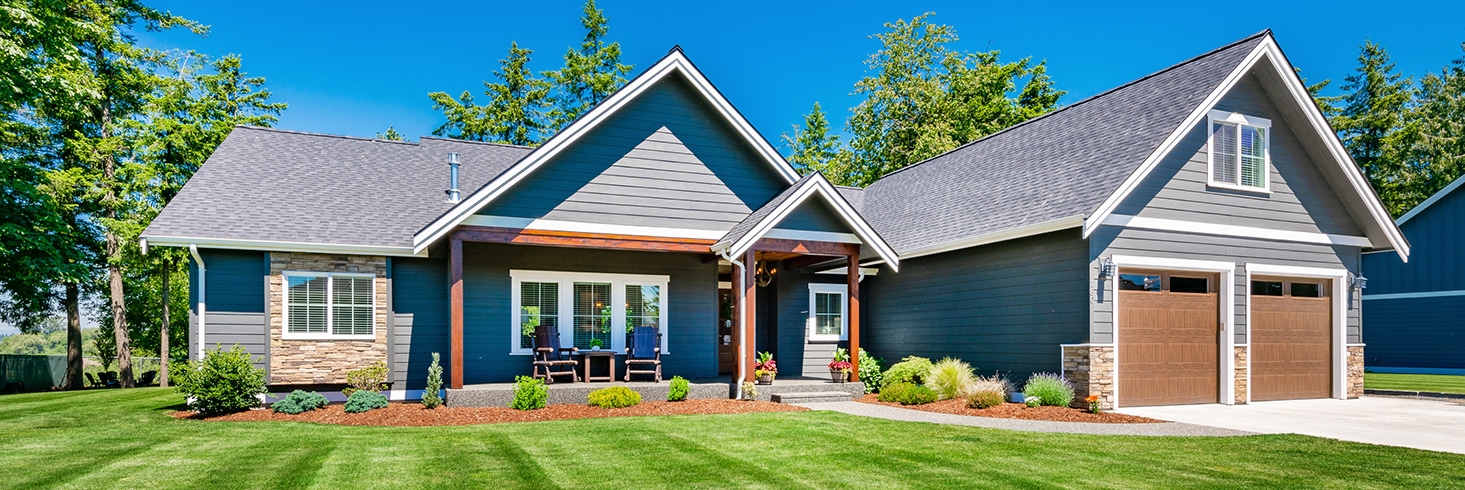
How Much House
Can You Afford?
Have you ever daydreamed about your perfect home? Perhaps it has a spacious kitchen, a cozy fireplace, or a backyard oasis. It’s easy to get lost in the dream, but the first step toward making it a reality is understanding how much house you can actually afford. A home purchase is one of the biggest financial decisions you’ll ever make, and finding the right balance between your dream home and your budget is crucial.
How to Calculate How Much House You Can Afford
For starters, if you’re looking for the sweet spot of home affordability, you should make sure your total monthly debts don’t exceed 41% for a Conventional Loan, although there are some exceptions and other programs available. You’ll also want to make sure you have a down payment and cash for closing. The 28/36 rule is a good guide to use as a general rule of thumb, where 28% of your income is a healthy amount to spend on housing.
For example, if your household income is $80,000, you should plan on spending around $1,866 on a monthly payment, which equates to a home purchase of around $210,000 with a small down payment. In other words: $80,000 annually / 12 months * 28% = $1,866.
The Factors Behind Home Affordability
Home affordability is a multi-faceted concept with many factors coming into play at once. If you’re looking to buy a home and you want to find out what you can afford, you should consider each of these aspects.
Annual Income
If you’re looking to make a financial commitment as huge as buying a home, you need to consider how much money you make since you’ll need to make enough to keep up with your monthly payments, taxes, insurance, and all of the home maintenance that goes along with homeownership.
Your Location
When it comes to home affordability, it’s not all about money per se. The area in which you’re buying plays a huge role from property taxes to HOA fees and expenses. The cost of living, of course, also factors into the equation. All of these things can influence the overall price of your home.
Your Available Funds
Down payments are helpful (and often required) when buying a home. You need to make sure you have money for a down payment and available funds in your bank account to use to cover any closing costs, too. Not to mention, when you settle into your dream home, you might want and need to purchase a few things to make it feel like home. Keep in mind that money used towards closing and down payment will need to be sourced and seasoned meaning it can’t be cash that you have squirreled away in your mattress or freezer.
Monthly Expenses & Debts
Unfortunately, your other bills don’t disintegrate when you take on a mortgage and in fact, you’ll have new bills to go alongside your home loan payment when you complete a home purchase. With your new house comes a mortgage payment, electric bill, and other utility bills depending on where you live, along with your standing monthly debt payments (auto loans, student loans, etc.). You’ll need to understand the full scope of your monthly expenses with debt payments factored in so you can determine what your actual home affordability is. You may also want to build up a savings for any home repairs that you might encounter.
What is the 28/36 Rule?
The 28/36 rule is a guideline commonly used by financial gurus to give a rough estimate on how much you should spend on housing when compared to your income. According to this rule, your monthly housing expenses should not exceed 28% of your gross monthly income. This includes costs like mortgage payments, property taxes, homeowners insurance, and any homeowner’s association fees. Additionally, your total monthly debt payments should not exceed 36% of your gross monthly income. This covers other debt obligations such as credit card payments, car loans, and student loans.
How Credit Score Affects Your Affordability
Your credit score plays a significant role in determining how much house you can afford. A higher credit score typically allows you to qualify for a larger mortgage amount and better interest rates. Lenders use your credit profile to assess your creditworthiness and likelihood of repaying the loan. Higher credit scores tell lenders at a glance that you are more likely to make timely payments and manage your debt responsibly, making you a lower risk borrower. This can result in lower interest rates and more favorable loan terms. On the other hand, a lower credit score may limit your borrowing options, as lenders may offer you higher interest rates or require a larger down payment to offset the perceived risk.
If you need direction on improving your credit score to be ready for a home purchase, consider talking to one of our experienced Loan Officers!
How Debt to Income Ratio Affects Your Home Purchase
Debt to Income Ratio, or DTI, is your debts compared with your income. If you have a $3,000 monthly income but pay $1,500/month in debts, you’ll have a 50% DTI ratio, which is high and may lower the amount of home you’re able to afford. Typically, a DTI of 41% is the maximum most buyers will get away with, although there are circumstances that allow you to go higher.
What is the Average Cost of a Home in Michigan?
The average cost of a home in Michigan is ever-changing, but as of Spring 2024, buyers can expect to spend around $255,000 for the average Michigan house.
Tips on Preparing for Buying a Home
First, review your credit report and credit score to identify and address any issues that may affect your ability to qualify for a mortgage or secure favorable terms.
Next, establish a budget to determine how much you can realistically afford to spend on a home, considering factors such as your income, expenses, and savings for a down payment. It’s also essential to save for a down payment and closing costs, as well as to have additional funds set aside for unexpected expenses. You should also research the housing market in your desired area to understand pricing trends and competition.
Finally, get pre-approved for a mortgage (our Lenders at Treadstone are happy to help!) to show sellers that you are a serious buyer and to streamline the buying process.
FAQs
How much house can I afford based on my salary?
Determining how much house you can afford based on your salary depends on several factors including your income, debts, expenses, credit score, and the current interest rates. A common guideline is that your monthly mortgage payment should not exceed 28% of your gross monthly income. Your total monthly debt payments, including your mortgage, should not exceed 36% of your gross monthly income.
Does the loan type affect a house’s cost?
Yes, the type of loan you choose can affect the cost of the home you can afford. Different types of loans have varying requirements and terms that can impact how much you can borrow and the overall cost of your mortgage.
How much do you have to make a year to afford a $500k house?
You’d want an income of around $210,000 to comfortably afford a $500,000 house, but certain buyers may qualify with around a $130,000 annual income. Income is only one piece of the home buying qualifications, and you’ll need to speak with a licensed lender to see if you qualify.
How much house can I afford if I make $100K?
$240,000 is a comfortable house price for a $100,000 income, but there are scenarios where it could stretch to the ballpark of $375,000. Talk to a licensed lender to see if you meet the qualifications for a home loan, as income alone does not qualify you.
How much does the amount of my down payment affect the amount of house I can afford?
Your down payment amount can significantly affect the amount of house you can afford. A larger down payment allows you to borrow less money, which can result in lower monthly mortgage payments and potentially a lower interest rate.
For example, if you’re looking to buy a $300,000 home and you make a 20% down payment ($60,000), you would need to borrow $240,000. However, if you were to make only a 10% down payment ($30,000), you would need to borrow $270,000.
*The examples above are for illustrative purposes only, for actual numbers and information specific to you please contact your Loan Officer
Knowing your budget while looking for a house is essential

